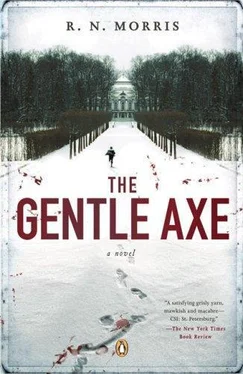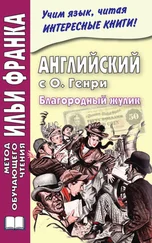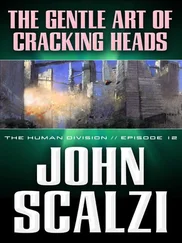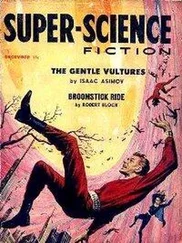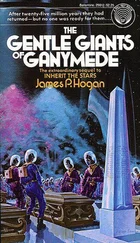R. Morris - The Gentle Axe
Здесь есть возможность читать онлайн «R. Morris - The Gentle Axe» весь текст электронной книги совершенно бесплатно (целиком полную версию без сокращений). В некоторых случаях можно слушать аудио, скачать через торрент в формате fb2 и присутствует краткое содержание. Год выпуска: 2008, ISBN: 2008, Издательство: Penguin Books, Жанр: Исторический детектив, на английском языке. Описание произведения, (предисловие) а так же отзывы посетителей доступны на портале библиотеки ЛибКат.
- Название:The Gentle Axe
- Автор:
- Издательство:Penguin Books
- Жанр:
- Год:2008
- ISBN:9780143113263
- Рейтинг книги:5 / 5. Голосов: 1
-
Избранное:Добавить в избранное
- Отзывы:
-
Ваша оценка:
- 100
- 1
- 2
- 3
- 4
- 5
The Gentle Axe: краткое содержание, описание и аннотация
Предлагаем к чтению аннотацию, описание, краткое содержание или предисловие (зависит от того, что написал сам автор книги «The Gentle Axe»). Если вы не нашли необходимую информацию о книге — напишите в комментариях, мы постараемся отыскать её.
The Gentle Axe — читать онлайн бесплатно полную книгу (весь текст) целиком
Ниже представлен текст книги, разбитый по страницам. Система сохранения места последней прочитанной страницы, позволяет с удобством читать онлайн бесплатно книгу «The Gentle Axe», без необходимости каждый раз заново искать на чём Вы остановились. Поставьте закладку, и сможете в любой момент перейти на страницу, на которой закончили чтение.
Интервал:
Закладка:
“It’s all right,” said Porfiry softly. “But tell me, why did he hit you this last time? Was it to do with Virginsky?”
Her eyes swelled with panic. “It was the samovar.”
“The samovar?”
“It went missing. Someone stole it.”
“Someone stole your samovar?” Porfiry was incredulous. He couldn’t understand how he came to be having a conversation about a stolen samovar so soon after what he had just seen. He sensed Salytov’s impatience. Meeting it with a glance, he nodded as Salytov indicated that he was going into Virginsky’s room. “He beat you because someone stole your samovar?” Porfiry welcomed the rage that he felt rushing through him. He said to himself that if Kezel came home now, he would kill the man without regret. He imagined closing his hands around the cabinetmaker’s neck.
Porfiry was suddenly disgusted by his own self-pity and self-delusion.
“Do you know who stole the samovar?” Porfiry felt a strange hilarity threatening to burst out. He had to struggle to keep his face straight.
The woman shook her head tensely.
Porfiry closed his eyes. The image of blood-splashed icons forced itself on him. “Who did your husband think had taken the samovar?” He saw Vera playing in the snow with her friends. But her face was smashed and bloody. She came toward him and tried to speak. Her nose flapped loosely every time she opened the raw gash that had been her mouth. No words came out, but she dribbled bloody mucus. Porfiry opened his eyes and studied the bruises on Madame Kezel’s face. He wanted to touch the places where her skin had ruptured.
“Pavel Pavlovich,” she answered at last.
“Virginsky,” Porfiry nodded. “And was he right?”
Kezel’s wife looked down at the floor.
“He didn’t steal it though, did he? You gave it to him. You gave it to him knowing that your husband would miss it-how could he not miss it? — and knowing that your husband would take it out on you. My dear, you love Virginsky almost as much as you hate yourself.”
“I don’t hate myself,” she answered firmly. “I hate my husband.”
“Of course. Like every good Russian, he loves his tea. What a perfect way to punish him, to give away the samovar. So tell me, what did Pavel Pavlovich want with the samovar?”
“He pawned it. He said he would get it back. He was going to get it back now. When he saw what Kezel had done to me.”
“He was going to the pawnbroker’s?”
Salytov came out of Virginsky’s room. “I found more vials of laudanum. And this.” He handed Porfiry a scribbled note.
Father,
I am your son. I see that now and cannot deny it. I am as foul and as loathsome and as capable of crime as you. I have proved myself capable of the worst crimes imaginable. And I hate myself more than I have ever hated you. I can’t live with what I have become. A criminal and a coward. I shall throw myself in front of a galloping troika. It is the only way for a Russian to kill himself. I will be free of you and you will be free of me.
But you shouldn’t have beaten her. How could you beat her?
Your son, Pavel Pavlovich.
The bell complained fussily as Salytov threw open the door to Lyamshin’s. Porfiry was aware that he was allowing the policeman to take the lead now. Remembering his exchange with the Jewish pawnbroker, he had an uneasy feeling.
The last time he had set foot in the shop, the objects around him had seemed enticing. He had chosen to invest them with mystery and desire. He had plunged his fingers between some of them. Even the sense of tragedy they had inspired was romantic. It moved without touching him. Now the feeling they provoked in him was more visceral and stifling. These were not neutral everyday objects; they were the forms of despair. Despair was the one raw material from which they had all been shaped, not porcelain or brass or Karelian birch. And they were imbued with a destructive malevolence.
Porfiry recognized the man behind the counter and could tell that he had been recognized. Distrust closed the man’s features.
Porfiry put a restraining hand on Salytov’s shoulder. “Please, Ilya Petrovich, let me talk to him,” he said in an undertone.
Salytov writhed away from his touch. “What does it matter?” he said angrily.
Porfiry walked past Salytov, up to the counter. The pawnbroker shifted uncomfortably, waiting. “You remember me,” said Porfiry.
The pawnbroker nodded.
“The last time I was here, we talked about the student Virginsky. Have you seen him recently?”
“He came in yesterday.” The man’s eyes darted from side to side, as if looking for escape.
“To pawn a samovar.”
“That’s right.” Surprise and a reluctant admiration showed in the man’s eyes.
“Did he not come in today, just now, to redeem it?”
The pawnbroker shook his head. “I haven’t seen him since yesterday.”
“Perhaps one of your assistants dealt with him?”
“But the samovar is still here. He hasn’t redeemed the pledge.”
“Can you show it to me?”
The pawnbroker pointed high up behind Porfiry. Porfiry turned to see a shelf of samovars. “It’s the one on the end. The end nearest you.”
Porfiry winced to think that Madame Kezel had received a beating over the loss of such a tarnished and battered object. It was an ugly, ordinary samovar. He signaled his dejection to Salytov. They left the shop without further questions.
They came out into the echo and blur of the flea market and the excited bustle of the great Apraxin Arcade. The scent of pine trees and spiced pastries rushed them. Porfiry felt weak and suddenly hungry and nauseous at the same time.
“What will you do?” asked Salytov.
“Stay here. Watch.”
“You think he’ll come here?”
Porfiry shrugged. “It depends if he has the money to redeem the samovar.”
“Perhaps he took money from them. That may have been the motive.”
“No.” Porfiry shook his head impatiently, almost angrily. “He may have taken money, but it wasn’t the motive. There is more than money to this.”
“What do you want me to do?” asked Salytov.
“Go back to the station. Wait for me there.”
Salytov seemed reluctant to take his leave. “He may be dangerous,” he said. “If you try to apprehend him, he may-”
“I’m not going to apprehend him. I just want to talk to him.”
“But you can’t let him go, if you see him.”
“I hope to persuade him to give himself up.”
“I should stay with you,” said Salytov after a slight pause.
Porfiry smiled weakly. “Really, Ilya Petrovich. There is no need. He won’t do anything here. Not with all these people around.” Porfiry gestured vaguely to the rushing crowds.
“He may panic. Who knows what he will do if he panics.”
“But I can’t believe it’s him. I’ve looked into his eyes. They were not the eyes of a murderer.”
“You can’t know that!”
Porfiry was shaking his head insistently. “He is not the murderer. How could he be the murderer and be moved by Madame Kezel’s wounds?”
“He had blood on his hands! The note. It was as good as a confession.”
“But it was not a confession. Not to murder. Perhaps it was a confession to some other crime. The crime of taking the samovar. The crime of causing Madame Kezel’s beating.”
“Then explain the vial of laudanum we found.”
“He was there!” Porfiry’s cry was anguished. “But so were we, were we not?” he pleaded desperately.
“We had reason to be.”
“Go,” commanded Porfiry.
Salytov nodded tersely and turned his back on the investigating magistrate.
THERE WAS Abookstall near the entrance to Lyamshin’s. Porfiry positioned himself on the far side of it, so he could keep an eye on the door to the pawnbroker’s without being seen by anyone who went in or out of the shop. He pretended to browse the books and nourished himself on the fumes from the bookseller’s samovar.
Читать дальшеИнтервал:
Закладка:
Похожие книги на «The Gentle Axe»
Представляем Вашему вниманию похожие книги на «The Gentle Axe» списком для выбора. Мы отобрали схожую по названию и смыслу литературу в надежде предоставить читателям больше вариантов отыскать новые, интересные, ещё непрочитанные произведения.
Обсуждение, отзывы о книге «The Gentle Axe» и просто собственные мнения читателей. Оставьте ваши комментарии, напишите, что Вы думаете о произведении, его смысле или главных героях. Укажите что конкретно понравилось, а что нет, и почему Вы так считаете.
